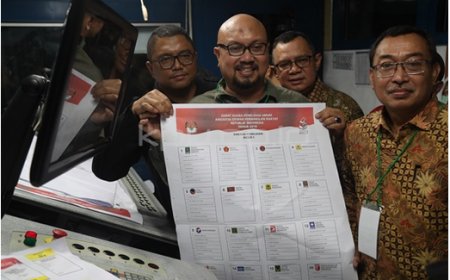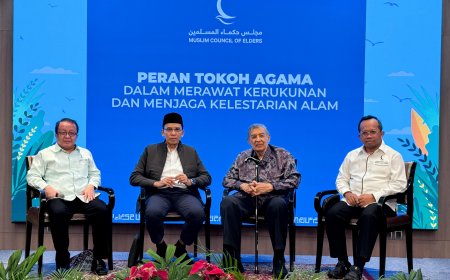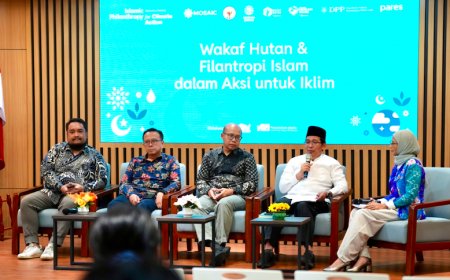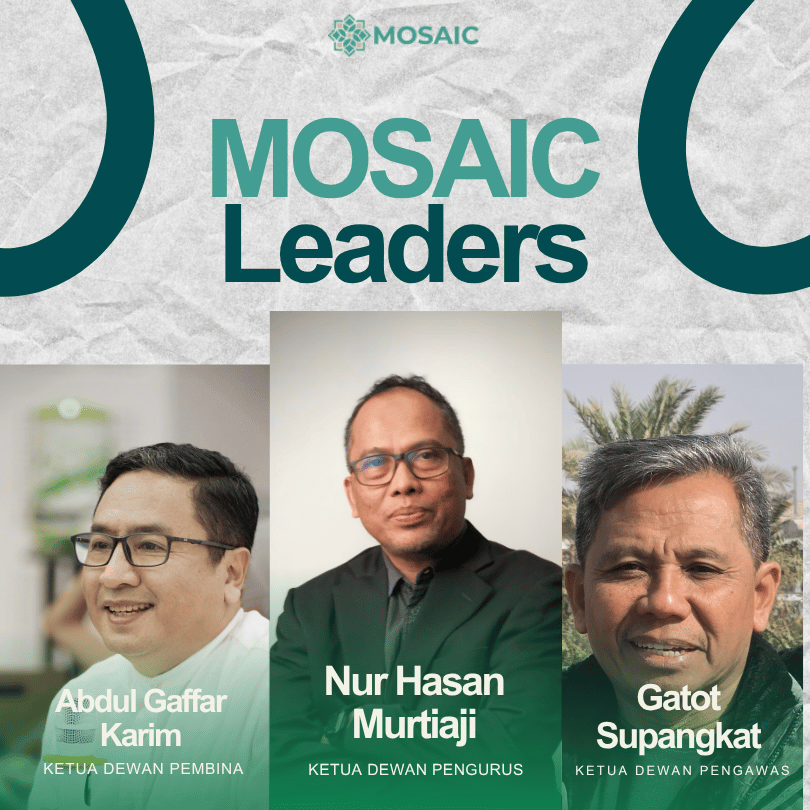Japanese researcher peruse the relation of islam and environment in Indonesia
Natsu was interested in delving into several Islamic-based environmental movements such as garbage alms and waqaf forests.
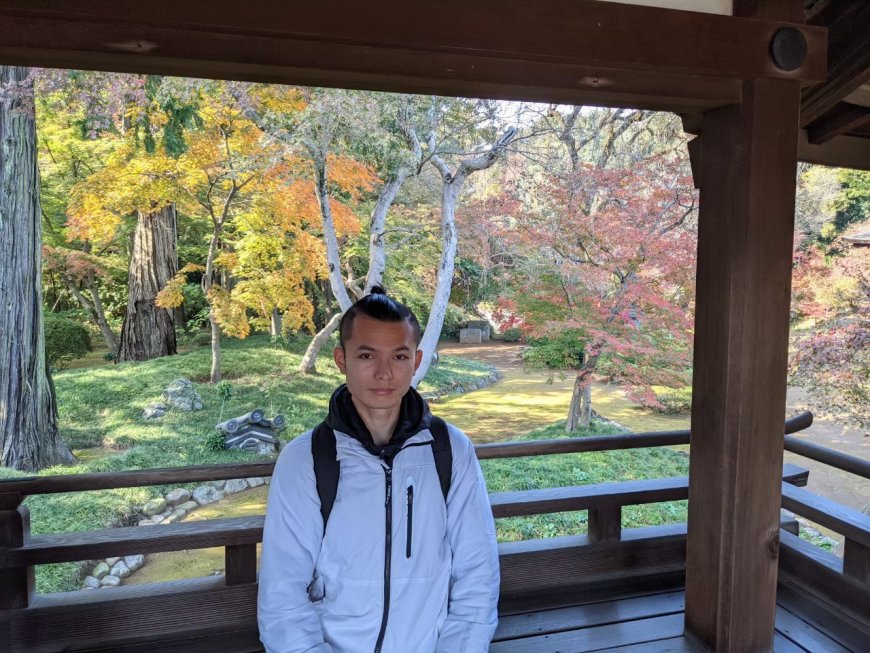
MOSAIC-INDONESIA.COM-JAKARTA, The diverse innovations of the preservation movement with Islamic values led Natsuki Chubachi to conduct research in Indonesia. Natsu who are doctoral student from Kyoto University, Japan, is interested in delving into some Islamic-based environmental movements such as garbage and waqf forests. To Republika, Natsu, as soon as he was familiarly addressed, admitted to choosing Indonesia after getting recommendations from his professors on campus.
Natsu started with 40 mosques and boarding schools located around Java that had ecological programs. The 26-year-old man moved to Jakarta, Bekasi, Bandung, to Jogjakarta. He also found that on average, mosques and boarding schools have independent waste management. They collect garbage then sort it out. For non-decomposing waste such as plastic and iron, it will be processed or resold to the stacker. Sometimes, such garbage is processed into handicrafts.
For kitchen waste it will be processed into compost. “The results were harnessed for fertilizer,” he said during a conversation with MOSAIC via a virtual communication platform,.
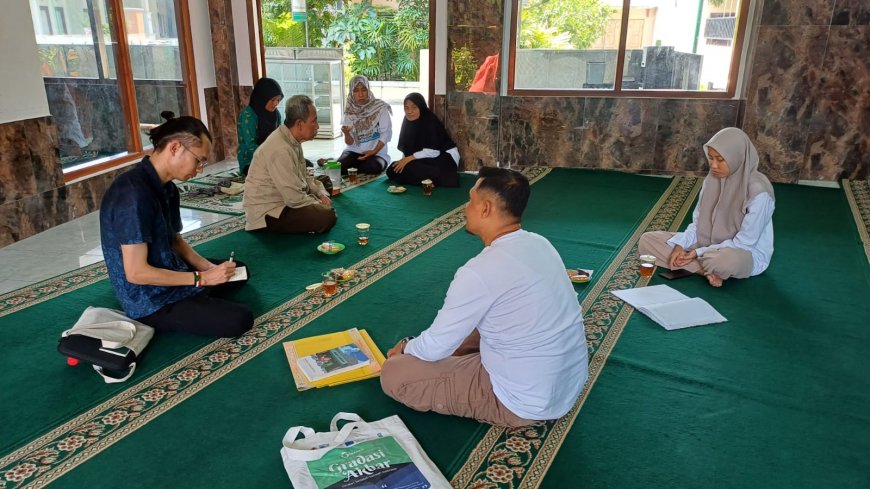
In addition to being fertilizer, some of the objects Natsu studied also make kitchen waste a breeding medium for maggot and worms. These soft-boned animals would be sold as animal feed. In the market, the price of live maggot ranges from IDR 20 thousand-IDR 30 thousand per kg. The selling value of maggot will increase to the range of Rp 50 thousand per kg when sold in dry parcels.
Natsu witnessed how waste management could become an economic powerhouse of mosques and boarding schools. “Of the mosques I searched, many asked me to go to Jogja to go to Al-Muharram Mosque,” he said.
Al-Muharram Mosque is in Kampung Brajan, Kasihan District, Bantul Regency. The mosque has initiated the Garbage Alms Movement (GSS) since 2013. The movement was initiated by Ustaz Ananto Isworo, Takmir Masjid Al Muharram.
To start ofthis program was not easy considering that the word 'charity' is not comparable to 'trash'. Residents were astonished by the name of the program. The proceeds of garbage collection from the movement were then returned again to the community.
There are three programs managed using the funds of this movement. First, the allowance of orphan education scholarships and dhuafa. This is the first program implemented through the GSS fund. In fact, residents did not believe in this movement, but when they felt that their children's SPP was being helped, residents began to participate in raising GSS.
Next, the alms allowance for poor poor widows, which is IDR 50 thousand-IDR 100 thousand each package for three months. Over time these programs were sometimes interspersed with government as well as private assistance. The health benefit program for each underprivileged citizen who opname will receive a subsidy of Rp 500 thousand.
Seeing the great benefits of this GSS, not only the residents of Kampung Brajan and the youth of the mosque participate in sorting garbage in the mosque. Young people from outside, such as students, also often participate. Mosques in the homeland later adopted the movement. Al-Muharram Mosque, which has also benefited from the Energy Alms program from MOSAIC, also created a network of GSS mosques. Up to now, there are 53 mosques that participate in the garbage charity ecosystem.
Natsu, who also took the time to visit Al-Muharram Mosque, revealed that residents collaborate in the garbage charity movement driven by Islamic values. “Islam is a platform for exploring garbage. I think that aspect (Islam) as a platform is very interesting. So I have to draw or push for conclusions from that platform,” he said. “They have alternative ways and legitimacy under religion and belief and in share,” he added.
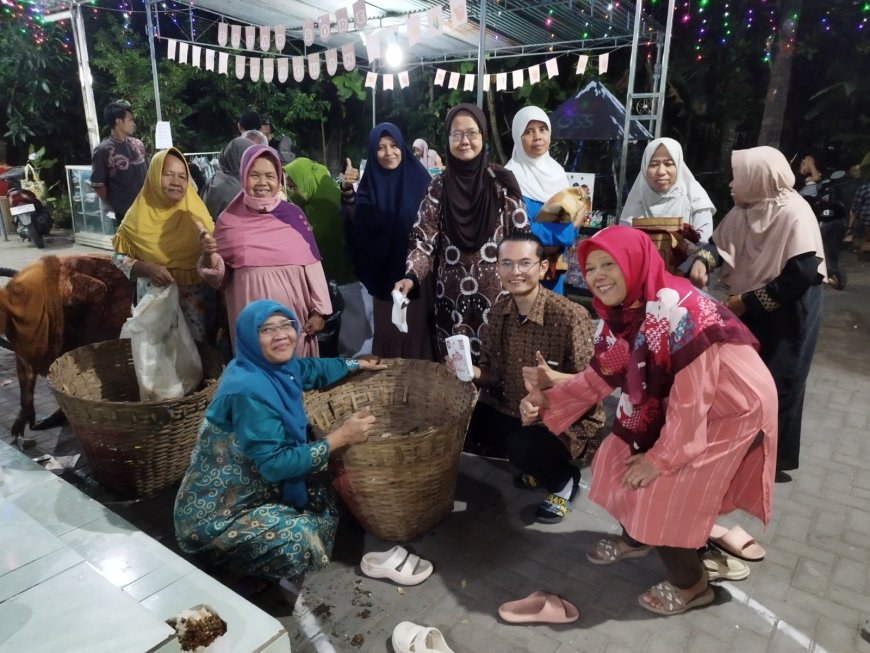
In addition to being interested in reviewing trash alms, Natsu also researches the topic of waqaf forests. He also visited the Waqf Forest of Bogor, the Waqaf Forest of Aceh to the Waqf Forest in Mojokerto. According to Natsu, the waqf forest in Indonesia is different from the social waqf forest. The waqf forest is unique because it combines the concept of philanthropy in Islam with nature preservation. The concept of waqf forest spread in some areas. “There are movers in Indonesia who see this waqaf forest protected by God rather than state or private property,”he said.
A waqf forest is a waqf land that functions as a forest in accordance with an agreement between the wakif (land owner or land liberator) and the nadzir (the appointed party administering the land that has been appropriated). Although the laws in Indonesia do not recognize the nomenclature of the waqaf forest, Indonesia already has regulations or laws related to waqaf.
It starts with curiosity about Daesh.
Natsu's journey to research Islam and the environment in Indonesia was not necessarily undertaken. At first, Natsu's curiosity about Islam was born out of the ISIS movement, which often carried Islam in their propaganda. At that time, ISIS, or Daesh, which controlled parts of Iraq and Syria, had always shown barbarism not only to non-Muslims but to dissenting Muslims.
Natsu, wanting to understand more about Islam, went to Sudan to learn Arabic. He claimed to have chosen Sudan because it is popular with good Arabic Fushah (a language for academics). Towards the 2019 switch, Sudan experienced a revolution. President Omar al-Bashir's known dictatorial regime was soured by residents. The demonstrations and rallies that heated political temperatures in Sudan were felt by Natsu. While attending the rally, he was surprised that some people picked up garbage during the demonstration. What is more, what is it doing because it is based on the teachings of the Islamic religion. “I used to think of Islam as an act of faith or charity, Hajj. But in Sudan, most people have ideas about the environment or the natural environment,” Natsu said.
After four months of studying languages in Sudan, Natsu went to Egypt to deepen his Arabic studies. There, he also learned a lot of colloquial language from Yemeni men. It was during this informal study that he again realized how much Islam was not limited to ritual. “From him, I also learned the environment,” he said.
After spending nearly half a year in Africa, Natsu later returned to Japan. He decided to study Islam and the environment in order to pursue master's and Phd programs. “I give information about Islamic teachings and the environment but more theories, the books. I think Islam and the environment are quite a subject for my thesis,” he explained.
Natsu then selected Indonesia as the country to be studied. In addition to being the supervisor's recommendation, Natsu felt that there was more innovation in Indonesia regarding Islam than in Arab countries.
“On the other hand, Indonesia is in the rain forest area. I think this is proof that environmental issues or climate crises are very much linked to the lives of Muslims,” he said.

